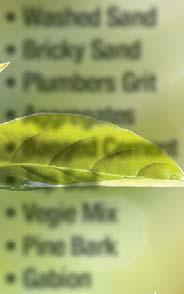September 11 - 17 , 2024
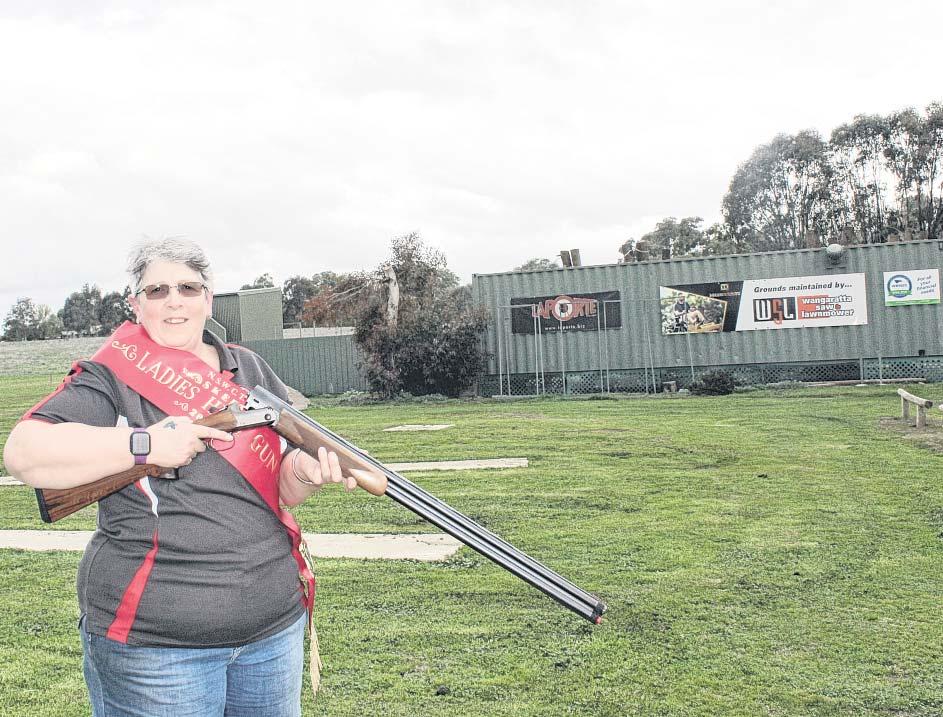



September 11 - 17 , 2024





By CHLOE JAENICKE
THE Wangaratta Clay Target Club has been operating since 1919 and is the perfect place to learn the sport and meet new people.
Long time member of the club, 62-year-old Alison Harwood, has been at the clay club for 22 years and has been shooting since she was 17.
She received her life membership at Wangaratta last year after 10 years on the committee and said she started shooting with her dad and brother as a child.
“We always did field shooting with rabbits and ducks,” she said.
“One day a friend of my dad’s, who was on the pistol team, took my dad down to the pistol club in the city.
“He suggested that my dad take my brother and I out to the Melbourne Gun Club in Lilydale because we always used to shoot guns, and it sort of went from there.”
As Ms Harwood progressed in target shooting, she mainly took part in skeet shooting.
Skeet shooting is a form of shooting where participants use shotguns to attempt to break clay targets which two fixed stations mechanically fling into the air at high speeds and a variety of angles.



Over the years Ms Harwood has had many achievements in skeet shooting including winning the Ladies High Gun at the NSW State Carnival and making the Australian ladies team in 2014 and 2015 as well as being part of many other local, state and national teams.
While the Wangaratta Clay Club no longer offers skeet shooting, Ms Harwood said she has been part of the committee for the past five years and shoots more field and game in Cobram and Benalla.
■ Continued page 6

















UNFORTUNATELY, as with people, cancer is a relatively common finding in older animals.
Generally, above eight years of age.
Cancer is the development of abnormal cells in the body that replicate in an uncontrolled manner.
The cancers most often present with a lump, although some are diffuse, and found in the blood or various organs.
These are often much harder to diagnose.
All the tissues in the body have the potential to become cancerous and the symptoms seen will vary depending on location.
The symptoms of cancer can be varied and include masses on skin, vomiting and diarrhoea from intestinal tumours, blood in urine with bladder tumours, coughing with lung tumours, or are non-descript like weight loss or lethargy.
To diagnose cancer your vet will perform a range of different tests.
A biopsy of the cancerous tissue is often the most diagnostic test your vet will perform, it will not only diagnose a cancer but also determine which type of cancer is present.
This is very important to determine the best course of treatment as well as the overall prognosis.
Your vet will also often recommend running blood tests to look at various parameters in the blood that affect treatment and prognosis.
They will often also perform chest radiographs to look for the spread of the cancer.
Treatment options include surgery, chemotherapy and radiation therapy.
Surgery will generally be recommended for any discrete masses as removing the tumour can often be curative.
For more diffuse cancers such as
with Felix De Natris, Wangaratta Vet Clinic
lymphoma, chemotherapy is the treatment option of choice.
Chemotherapy for animals differs from human chemotherapy.
Generally, the chemotherapy agents are much less aggressive than human drugs, so pets will not loose their hair and nausea is short lived and mild.
The goals of animal chemotherapy often don’t include curing the animal and more focus on improving their quality of life.
If you are concerned about any lumps or any health issue with your pet book in for a consultation with your vet.

A VICE-REGAL PROGRESS
THE progress up the Murray of the Governor of South Australia, Sir Richard MacDonnell, and Lady MacDonnell continued steadily.
While bullock wagons were hopelessly bogged in the mud, the vice-regal party was steaming sedately up the broad waters of the Murray, making valuable commercial contacts with men such as Henry Hopwood at Echuca.





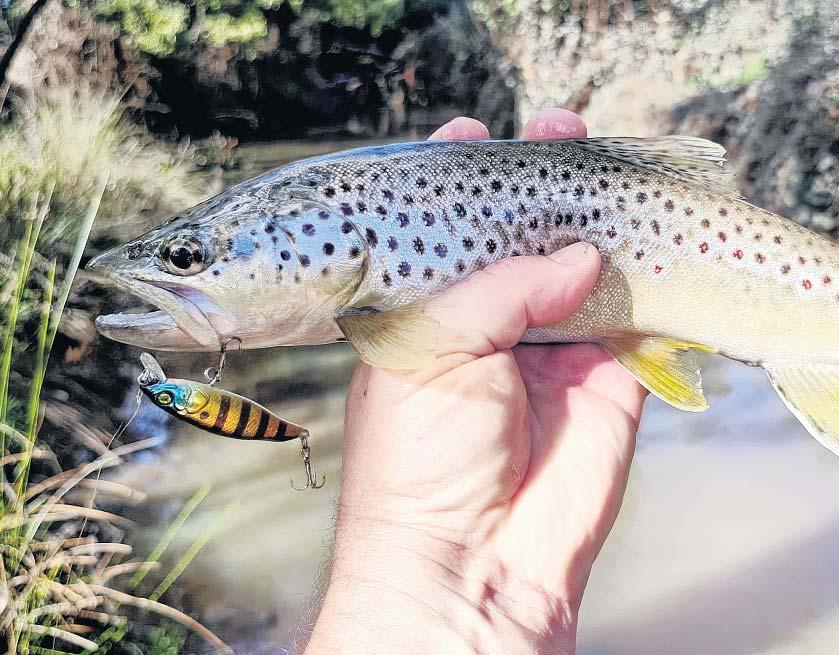
THE Victorian trout season opened on Saturday morning and many keen anglers were out trying their luck in streams across the North East.
I fished in a tributary of the King River where I was met with higher and dirtier than expected water conditions.
On Friday night Wangaratta barely had enough rainfall to wet the ground, but some places in the hills must have had some very heavy rain.
I was unprepared and did not take any worms - nor did I have a shovel to dig some with.
Conditions looked great for drifting worms, but I stuck with using lures.
I fished for a bit over five hours, and for my efforts I caught just two brown trout.
Both fish were caught on a

Damiki
From the reports I have seen online it appears as though many people had a similar start to the season, OK but not amazing.
I did see a couple of photos of larger trout caught in the Mitta Mitta River catchment, and I have seen a lot of photos of monster rainbow trout caught in the Goulburn River thanks to the Victorian Fisheries Authority who have been
stocking the huge ex-brood fish into the river once they are finished using them at the fish farms.
Some of these huge trout are over 4kg each.
On another note, I fished Lake Nillahcootie one evening last week.
I managed to catch four large carp and a nice 30cm Silver Perch.
All were caught angling off the bank with worms.
Lake Nillahcootie has been stocked with yellowbelly and Murray cod for many years, but it also has a few Silver Perch thrown into the mix now.
I think it may still be a little bit early for the yellowbelly over there, but over the next few weeks, as the weather starts to warm up a few yella’s should start to turn up.

















JUST a few weeks after Children’s Book Council of Australia Book Week, it’s worth reflecting on the sheer variety of books being produced for young people in this country.
While their parents and grandparents were raised on a literary diet which comprised a significant portion of Britishmade content, along with a dollop of Australian classics from previous generations, modern audiences are spoilt for choice when it comes to reading locally-produced stories, and seeing young people like themselves on the page.
This week we have a large seven-book giveaway pack from publisher Allen & Unwin to supplement one lucky young reader’s home library, and it highlights the many reading options currently on the market.
The pack includes three books from Anh Do, who himself creates a wide variety of stories through his many different series - almost a multiverse of his own.
The Anh Do books in the pack are instalments at various stages of these individual series - ‘Forest Secrets: Pow Pow Pig 6’, ‘Hide and Seek: Wolf Girl 11’, and ‘Scorpion’s Curse: Skydragon 8’.
All are illustrated (by Peter Cheong, Lachlan Creagh and James Hart respectively), with the stories told in Anh Do’s engaging style.
Young sports fans have a wealth of books to choose from - ranging from fiction created with the help of major sporting stars, to non-fiction series like the ‘Legends of Sports Series’ by Kit Cross and illustrated by Leigh Hedstrom.
The two in this book pack focus on Matildas star Sam Kerr, and Aussie basketballer Ben Simmons, with the stories

◆ PART OF THE MULTIVERSE: Anh Do has created a host of characters, including Wolf Girl.
of their lives interspersed with stats, and helpful tips for upand-coming sportspeople.
Cross is a children’s writer based in Melbourne who aims to share exciting facts and fun stories to inspire young readers.
Another prolific author of work for young people in recent years has been LM Wilkinson, whose latest release is the first in a series about an adventurous mouse named Titch - ‘Bravepaw and the Heartstone of Alluria’.
Illustrated by Lavanya Naidu, this highly readable adventure is full of magic and prophecy, quests, heroism and loyal friendship, and is sure to hook young readers until the very last page.
It centres on Titch, who has always longed for adventure, just like the gallant mouse hero Bravepaw in all her favourite stories.
But she is the smallest mouse in her family, living in a peaceful little village where nothing exciting ever happens…until dire trouble comes to the Plateau.
Titch and her best friend Huckleberry must set out on
a dangerous quest to take the Heartstone to repair the crack in the heart of Alluria before the whole world breaks apart.
Can Titch ever hope to live up to the legend of Bravepaw?
As with all these books, ‘The Witches’ Council’ is another opportunity for young readers to follow a series when they find one they love.
It’s the second adventure in the ‘Lily Halfmoon’ graphic novel series about a young witch and her friends.
In this latest story from Xavier Bonet, the witches have to fight off monsters and dark magic at a party.
• If you would like to win this seven book pack from Allen & Unwin, ‘Forest Secrets: Pow Pow Pig 6’ ($16.99), ‘Hide and Seek: Wolf Girl 11’ ($16.99), and ‘Scorpion’s Curse: Skydragon 8’ ($16.99), ‘The Witches’ Council: Lily Halfmoon 2’ ($17.99), ‘Bravepaw and the Heartstone of Alluria: Bravepaw 1’ ($16.99), ‘Sam Kerr: Football Legend’ and ‘Ben Simmons: Basketball Legend’ (both $12.99), email skerwin@nemedia.com.au to be in with a chance.

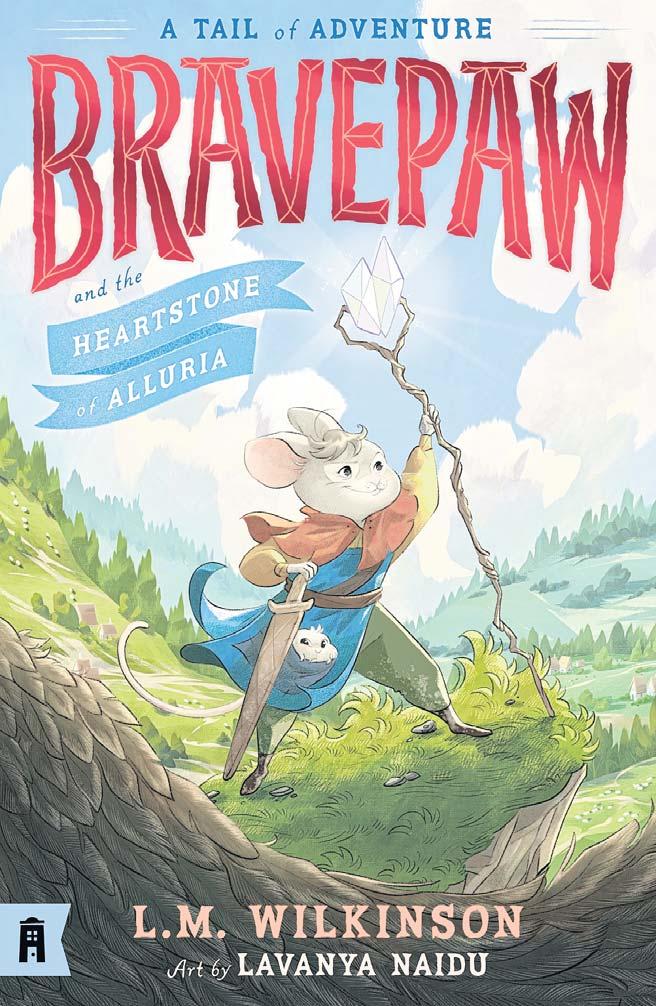










■ From page 1
Another aspect of shooting that she loves is the connections that she has made with other people, including Olympic level athletes like Catherine Skinner.
“I guess for me it’s the people side of it, it’s meeting so many different people from so many different diverse backgrounds,” she said.
“I’ve met guys from the American shooting team, they came out here many years ago, I’ve got friends all over the world that I’ve met through target shooting.
“Because shooting is such a small family, that’s where you get to know so many people from so many different areas.”
Despite shooting being a male dominated sport, Ms Harwood said this hasn’t phased her or changed her enjoyment of the sport.
“For me I’ve always got on better
with guys than women, so I’ve never really found that side of it but I know some people have,” she said.
“I always get on with the guys and have a bit of a joke and a bit of fun.”
While for some there is a stigma around shooting and guns, Ms Harwood said that hasn’t affected her enjoyment of the sport.
“I know when people ask me what I do for a hobby and I say I do clay target shooting, you can see them mentally step back because they’re like ‘oh, she deals with guns’,” she said.
“But it’s not like that, it’s a hobby and it’s my chosen sport.
“For me, I’ve grown up around guns so I can’t see the problem whereas other people do.”
Ms Harwood said for anyone wanting to join, the Wangaratta Clay Club is a supportive environ-
ment where people are always willing to help newcomers.
“Everyone is quite happy to join in and help new people,” she said.
“There’s always somebody that will offer you a hand and bit of encouragement and a bit of advice about how to go about things, how to get your licence, how to get your firearm, where to go and that sort of thing.”
The Wangaratta Clay Target Club is located about 5km north of Wangaratta, near the corner of Old Hume Hwy and Detour Rd, behind The Vine Hotel and is open Wednesdays and Saturdays from 1:30pm to 5:30pm.
For more information visit https://wctc.jimdofree.com/ or contact Craig Session at 0419 552 147.
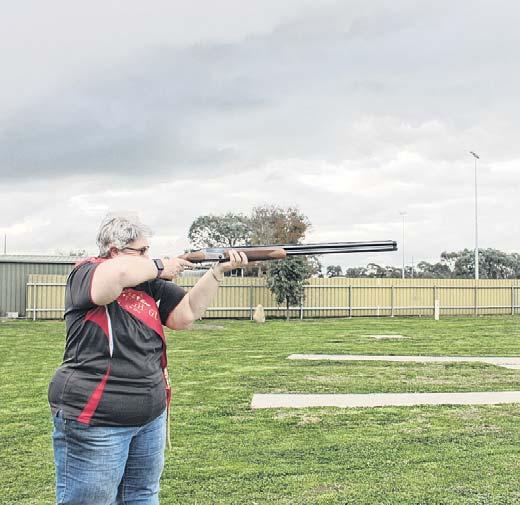





























AS spring arrives, many of us look forward to blooming flowers and warmer days.
However, for those who suffer from seasonal allergies, the season can bring a host of uncomfortable symptoms like sneezing, itching, and congestion.
While over-the-counter medications are commonly used, there are also natural ways to help alleviate allergy symptoms.
Here are some tips to help you breathe easier this spring.
1. Keep indoor air clean
Pollen can easily make its way indoors, so keeping the air inside your home clean is crucial.
Consider using an air purifier with a HEPA filter, which can trap airborne allergens.
Regularly change your HVAC filters and clean or replace them as needed.
Additionally, keeping windows closed during high pollen times can reduce the amount of pollen entering your home.
2. Rinse away allergens
Nasal irrigation is a simple and effective way to flush out allergens from your nasal passages.
Using a saline rinse or a neti pot can help clear out mucus and pollen, reducing congestion and sinus pressure.
Be sure to use pure filtered water and clean the device after each use to prevent infections.
3. Use natural antihistamines
Certain foods and supplements have natural antihistamine properties, which can help reduce allergy symptoms.
Quercetin, found in foods


like apples, onions, and berries, is known for its ability to stabilize mast cells and prevent the release of histamine.
Vitamin C is another natural antihistamine that can boost your immune system while reducing inflammation.
Drinking herbal teas like peppermint or ginger can also help soothe irritated airways.
4. Keep allergens at bay
After spending time outdoors, it’s important to remove pollen from your body to prevent it from spreading indoors.
Shower and change your clothes after outdoor activities and consider keeping outdoor shoes out of the house.
Washing your hair before bed can also prevent pollen from transferring to your pillows and bedding.
In addition to these natural remedies, it’s important to understand your specific allergy triggers.
Allergy testing can help identify the exact allergens causing your symptoms, allowing for a more targeted approach to treatment.
Furthermore, consider exploring homeopathic desensitizing treatments.
These treatments work by increasing your immunity and resistance to the allergens, helping to build tolerance over time and reduce your sensitivity.
By addressing your allergies at their source, you can experience long-term relief and enjoy the spring season to its fullest.
To make an appointment for an Allergy Test contact us at the NE Naturopathic Group on (03) 5798 3344.

why it’s crucial when buying a residential property.
Essential steps in your due diligence process
1. Property inspection: This can reveal hidden issues like structural problems, termite infestations, or asbestos.
2. Title search: This confirms that the seller has the right to sell the property and reveals any encumbrances, such as mortgages or easements.
3. Planning and zoning: Check with the local council about zoning regulations, future developments in the area, and whether all structures on the property have the necessary permits.
4. Strata/owners corporation records (for flats or units): Review the owners’ corporation records for information on building maintenance, financial health, and any ongoing disputes.
5. Flood and bushfire risk: Check if the property is in a high-risk area for floods or bushfires.
6. Neighbourhood research: Visit the area at different times of day to get a feel for noise levels, traffic, development nearby, and the general atmosphere.
7. Financial checks: Ensure you can afford the property by considering all costs, including stamp duty, legal fees, and potential renovations.



with Jonathan Green Legal
The Vendor’s Statement (Section 32)
In Victoria, sellers are required to provide a Vendor’s Statement, also known as a Section 32.
This document contains important information about the property.
While the Vendor’s Statement is helpful, it’s not a substitute for your own due diligence.
Cooling-off rights in Victoria
The cooling-off period is a legal safeguard that allows buyers to change their minds after signing a contract of sale for residential property.
Key points about coolingoff rights in Victoria include:
1. Duration: The cooling-off period is typically three business days, starting from the day you sign the contract.
2. Applicability: Coolingoff rights apply to private sales but not to properties bought at auction.
3. Cost of cancellation: If you decide to cancel the contract during the coolingoff period, you may have to forfeit 0.2 per cent of the purchase price to the seller.
4. Waiving cooling-off rights: You can choose to waive your cooling-off rights, but this should only be done after careful consideration
and ideally with legal advice.
5. Exceptions: There are situations where cooling-off rights don’t apply, such as when the buyer is a company or if the property is more than 20 kilometres from Melbourne and is used primarily for farming.
It’s important to note that while the cooling-off period provides some protection, it’s not a substitute for thorough due diligence.
Despite the ‘caveat emptor’ principle, there are some circumstances where you may have recourse if problems arise after purchase:
· If the seller deliberately concealed a defect or lied about a defect
· If the seller has not disclosed any matter required to be disclosed in the Section 32 Statement
· If the property differs substantially from what was advertised
· If the seller made false representations about the property
However, proving these cases can be difficult and costly.
Seeking Professional Help
While it’s possible to do some due diligence yourself, engaging professionals can provide peace of mind and potentially save you from costly mistakes.
Consider working with:
· conveyancer or property solicitor
· licensed building inspector
· licensed pest inspector
· mortgage broker or financial adviser

